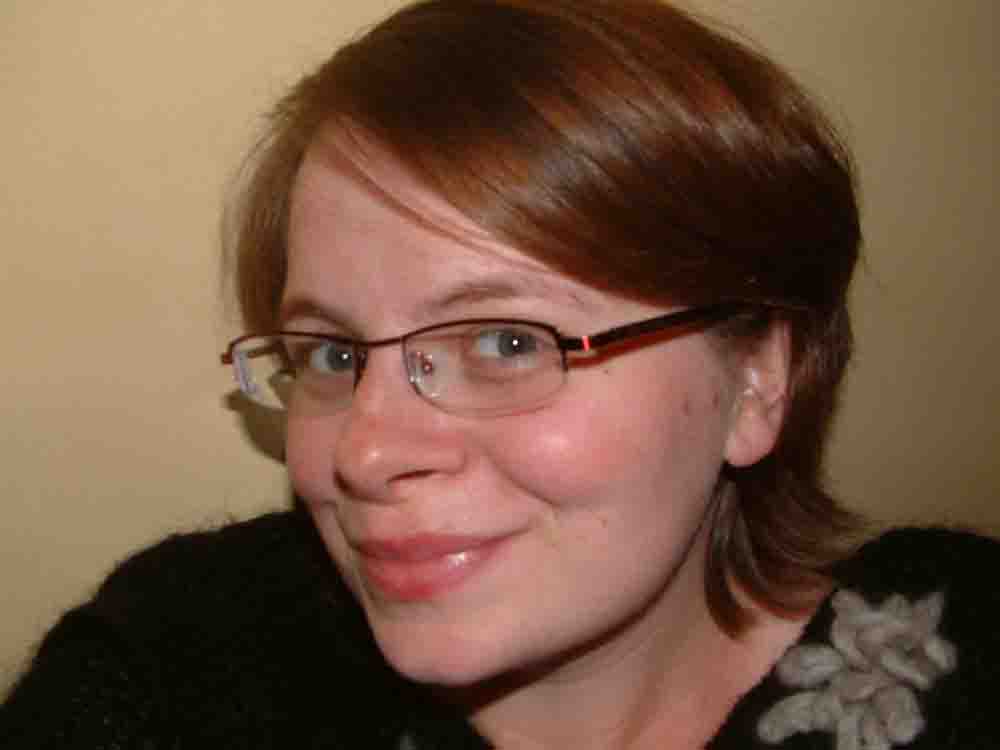Mission Possible- Who is Caroline Casey?

Caroline doesn’t like being called ‘inspirational’, but she can inspire. She doesn’t like been called ‘exceptional’, but she is leading an exceptional life. She doesn’t like taking ‘No’ for answer, so she generally doesn’t.
I could list off all the things she has done and achieved, but that may make her seem arrogant. She’s not. Surrounding her is energy, passion, commitment and belief. All of this is channelled into a firm conviction that people, whoever they are, whether young, old, Irish, female, male, black, white, disabled, healthy, sick, whoever, wherever, have ABILITY, and huge pots of potential.
Caroline runs a lot. When I rang up her PA to arrange the interview, she told me Caroline would probably run to the meeting. Caroline indeed is a woman in a hurry to fulfill a mission.
Her mission? Exactly the above; showing that people have ability.
Caroline, by the way, is legally blind, which means that she can see about two or three blurry feet in front of her. She doesn’t let it stop her; at least it didn’t stop her trekking across India on the back of an elephant. It didn’t stop her setting up the Aisling Foundation, an organisation she founded to help her achieve her mission. It didn’t stop her establishing the O2 Ability Awards. It didn’t stop her travelling ‘Around the World in 80 Ways’. It didn’t stop her completing ‘Challenge 32’ (running 32 eight minute miles, in Ireland’s 32 countries, in 32 hours).
You get the message, she’s not easily stopped.
Interestingly, Caroline’s parents never told her she was disabled. It was only when she was 17 and wanted to apply for her driver’s license did she realise that her sight (or lack of it) would pose significant problems. Not being labelled as disabled meant she believed she could do anything she wanted. She had dreams.
‘But if I had been labelled as a disabled child’ she said, ’you don’t get dreams, you are not allowed them; to be a ballet star, or to be a footballer or whatever. Disabled children don’t get that opportunity because so much ‘no’ is attached to them, because we don’t understand them, and people fear’.
She doesn’t suggest that people shouldn’t be told about their disabilities, but she does encourage dreams, including her own.
The 02 Ability Awards came out of the dream that corporate Ireland could be rewarded for how companies integrate disability into the workplace. The awards are about getting companies to understand how individuals can contribute as employees. They also create healthy competition in the sector for good practice. If company ‘A’ is given a televised national award, then company ‘B’ is encouraged to aim for it the following year. Being awarded for being the best brings competitive advantage; so competing in the Awards is good for business all round. In just three years, the Ability Awards have gone from an idea, into something which is dramatically challenging and changing corporate practices in Ireland.
One of Caroline’s next dreams is to bring the Ability Awards internationally. She also has a dream to set up an Elephant Sanctuary in India, a place where children with disabilities can go to gain confidence in their own potential (she has purchased the land, and a hotel chain has agreed to build the sanctuary, and is now trying to raise $175,000 to make the rest happen).
But that is not all. She is also working on a high profile media campaign to put disability on the international agenda, to give a voice to the 400 million people in developing countries with disabilities, who are generally hidden for the media and government eye. ‘If you have a disability and you are poor, you’re the poorest of poor. If you have a disability and you want to get education, you can’t. If you are disabled, and you’re a woman, and you’re poor, you are f***ed!’
‘Where are these people?’ she asks.
With Caroline on board, we are soon to find out.


0 Comments:
Post a Comment
<< Home